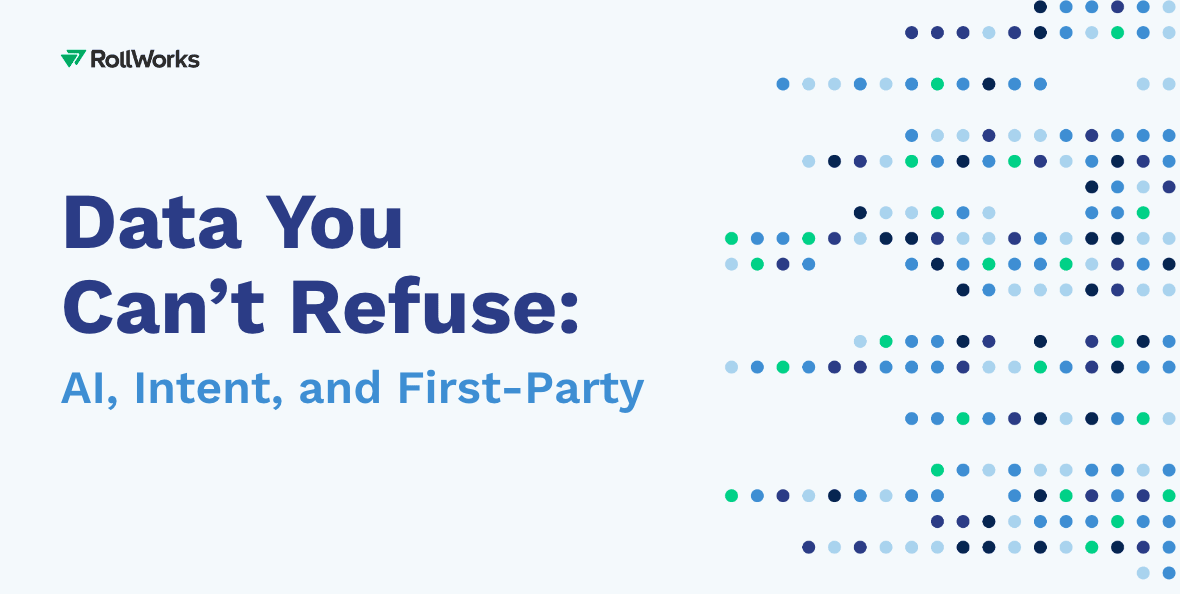Account-based marketing (ABM) platforms like Rollworks have affected strategic decisions for global B2B companies. ABM targets high-value accounts with personalized marketing efforts to drive higher engagement and conversions.
As the marketing industry charges closer to a cookieless future, fully understanding the role of intent data and AI can make or break your marketing effort(s). Here, we’ll explore and outline the potential of ABM in a cookieless digital marketing world while covering the importance of intent data, the role of AI, and strategies for navigating the challenges ahead.
The Relationship Between ABM and a Cookieless Future
Account-based marketing is a collaborative effort between marketing and sales teams to target high-value accounts. It differs from traditional marketing, which casts a wide net in mediums like pay-per-click or out-of-home advertising. Instead, ABM is highly focused, intending to engage with specific decision-makers within target companies that fit the ideal consumer profile. This personalized approach leads to more meaningful interactions, higher conversion rates, and a sense of maximizing your marketing investment.
ABM further differentiates itself from traditional marketing by curating tailored experiences for the audience. Focusing on the needs and pain points of specific accounts can help decision-makers and marketers collectively deliver more relevant and timely content and solutions, leading to stronger relationships and trust.
ABM comes at a time when third-party cookies are declining. Accordingly, the precision and effectiveness of ABM become even more critical as marketers have to rethink engagement metrics by first earning permission to track users' journeys.
Let’s explore some tools you can use to bridge that gap.
The Intersection of Intent Data and AI
AI technologies enhance the collection and analysis of intent data by providing deeper insights into customer behavior. Machine learning algorithms can process and interpret complex data sets, identify trends, and predict future actions. This capability creates opportunities for highly personalized, timely campaigns, which improves engagement and conversion rates.
For example, an AI-driven ABM platform can analyze intent data and identify accounts showing strong buying signals. From there, it can segment these accounts and provide personalized content based on their specific interests and needs. This level of precision ensures that marketing efforts resonate with the target audience, leading to better results. For the full breakdown, see how AI enhances ABM campaigns.
Status Quo of the Cookie-less Future
We briefly touched on third-party cookie depreciation in an earlier section. Still, Google's recent decision to cancel the immediate deprecation of third-party cookies has shifted the focus to new privacy-centric technologies like the Privacy Sandbox.
A privacy sandbox seeks to create a more private web while enabling marketers to deliver relevant ads through proven digital marketing tactics. Despite Google's sudden and unexpected change, it's still important for marketers to adopt a cookieless strategy to stay ahead of the curve. Stay updated on Privacy Sandbox developments.
Strategic Implementation: Integrating AI with Intent Data Without Cookies
In this revised version of a cookieless future, marketers should focus on first-party data, contextual advertising, and privacy-compliant methods according to the GDPR standard.
Here are some suggested steps for going from the current state of things to a future-forward cookieless marketing program:
-
Leverage First-Party Data: Collect and analyze data from your websites and CRM systems to understand customer behavior and preferences. It’s the first step towards building an enhanced consumer profile.
-
Utilize Contextual Advertising: Serve ads based on consumed content rather than tracking individual users.
-
Implement AI Tools: Use AI-driven platforms to analyze intent data and predict customer behavior. Prioritize personalized and timely engagements so you capture the momentum you build.
-
Adopt Privacy-Compliant Methods: To build trust with your audience, ensure all data collection and usage practices comply with privacy regulations, including the GDPR standard.
Envisioning a cookieless future requires innovative strategies and the right tools. RollWorks offers a solutions package that can help you effectively leverage AI and intent data.
By understanding the relationship between intent data, AI, and a cookieless future, marketers can continue to deliver personalized and effective campaigns, ensuring success in the evolving digital marketing environment.






























